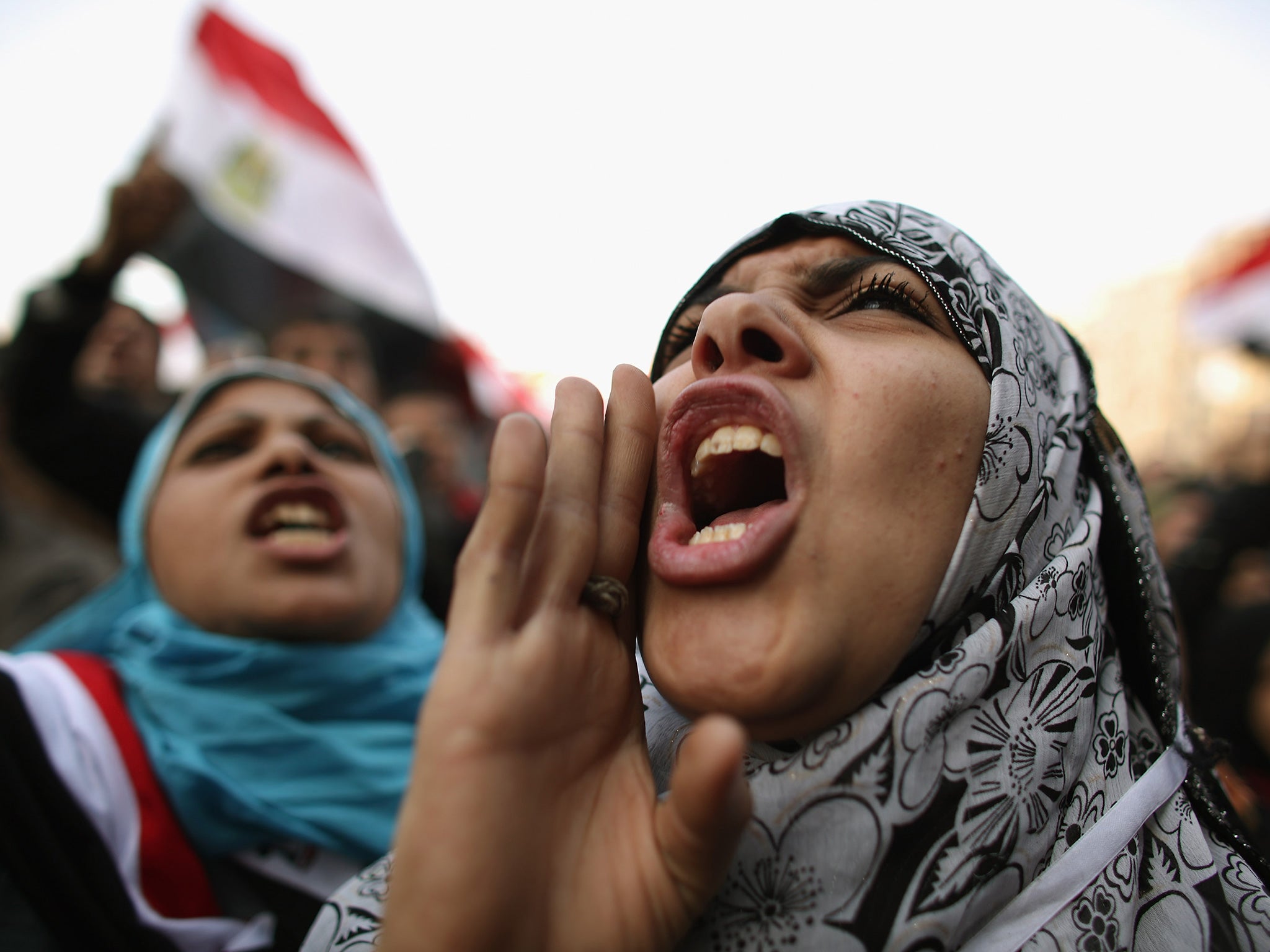Arab Spring’s failure to bring good governance was tragic, but we must continue to support its ideals
The Arab Spring revealed and unleashed the yearning for freedom and prosperity of people living under tyranny

Your support helps us to tell the story
From reproductive rights to climate change to Big Tech, The Independent is on the ground when the story is developing. Whether it's investigating the financials of Elon Musk's pro-Trump PAC or producing our latest documentary, 'The A Word', which shines a light on the American women fighting for reproductive rights, we know how important it is to parse out the facts from the messaging.
At such a critical moment in US history, we need reporters on the ground. Your donation allows us to keep sending journalists to speak to both sides of the story.
The Independent is trusted by Americans across the entire political spectrum. And unlike many other quality news outlets, we choose not to lock Americans out of our reporting and analysis with paywalls. We believe quality journalism should be available to everyone, paid for by those who can afford it.
Your support makes all the difference.Five years on from the misnamed Arab Spring, the Arab world has not seen the flowering of democracy, justice and tolerance for which many of us in the West had – perhaps naively – hoped, even if we didn’t truly expect it.
The region from Morocco to Oman is a toxic mix of autocracy, stuttering freedom movements, failing states, civil wars and theocratic monarchies. The implications for the millions of Arabs who deserve better, are generally woeful; and the impact of the Arab Spring’s failure can be felt much closer to home, too.
A brutal civil war in Syria – the latest evidence of which were pictures this week of starving children – has brought anarchy to that country and to neighbouring Iraq. This has been the principal factor behind the almost biblical exodus of desperate migrants to Europe in 2015, which has slowed slightly but certainly won’t stop this year.
We reveal today that fresh settlements planned by Israel will, according to the aggrieved Palestinians, “pour gasoline on the fire” of the seemingly insoluble conflict between these peoples. No sign of progress there, despite the frenetic efforts of the US Secretary of State, John Kerry. In North Africa, permanent instability appears to be the constant condition of the regional powerhouse Egypt, while post-Gaddafi Libya is a failed state that has become expert in both importing and exporting terror. The same is true of Yemen, perhaps the most neglected of the modern failed states in the Arab world, now run by militias and fanatics.
Meanwhile, the various Gulf monarchies show an unattractive mixture of brutal repression, exploitation of workers, and deplorable attitudes to minorities – whether sexual, political, ethnic, or otherwise – that cannot be defended on grounds of cultural difference. Over the past week, the House of Saud fired the latest shot in Islam’s sectarian war, inflaming Iran and delaying any hope of major reconciliation between Sunni and Shia. Given the rumbling Islamists who are Saudi Arabia’s main opposition, the House of Saud might be the West’s best hope for stability: a grim situation.
As for the other Gulf monarchies, where a collapsing oil price could be the trigger for unrest, this newspaper has led the way in exposing terrible working conditions in the United Arab Emirates – especially Abu Dhabi. Secret prisons, torture that leads to the extraction of false confessions, and a nasty intolerance of any who dissent from the government line on official matters, have become a hallmark of the region.
Not quite what some hoped for when revolutions broke out across the region, then. Only in quietly effective Morocco, on the western tip of the region, do peace and democracy look like they have a chance. Clearly, for such a range of problems and conflicts the solutions will be various and slow-paced. But some priorities for Western policy are still easy to determine.
In Syria, the aim must be the defeat of Isis through other rebel groups, based on local ceasefires encouraged by Western forces and intelligence. In Israel and Palestine, only a renewed diplomatic effort towards a viable two-state solution will do. In places like Libya and Egypt, all policy must be directed ultimately towards stable government. And in the Gulf monarchies, British co-operation on trade and investment should be used as leverage to fight for human rights and decent treatment of workers and minorities.
There is so much that we take for granted which seems destined not to exist in the Arab world – yet. Accountable governments; recognition of diversity and tolerance as human virtues; lasting peace: all these seem as far as ever from becoming the norm for the region. For all that, the Arab Spring did reveal and unleash the yearning for freedom and prosperity of people living under tyranny. It would be an unforgivable moral abnegation for those of us who have both to deny those hopes to the long-suffering people of this region.
Join our commenting forum
Join thought-provoking conversations, follow other Independent readers and see their replies
Comments